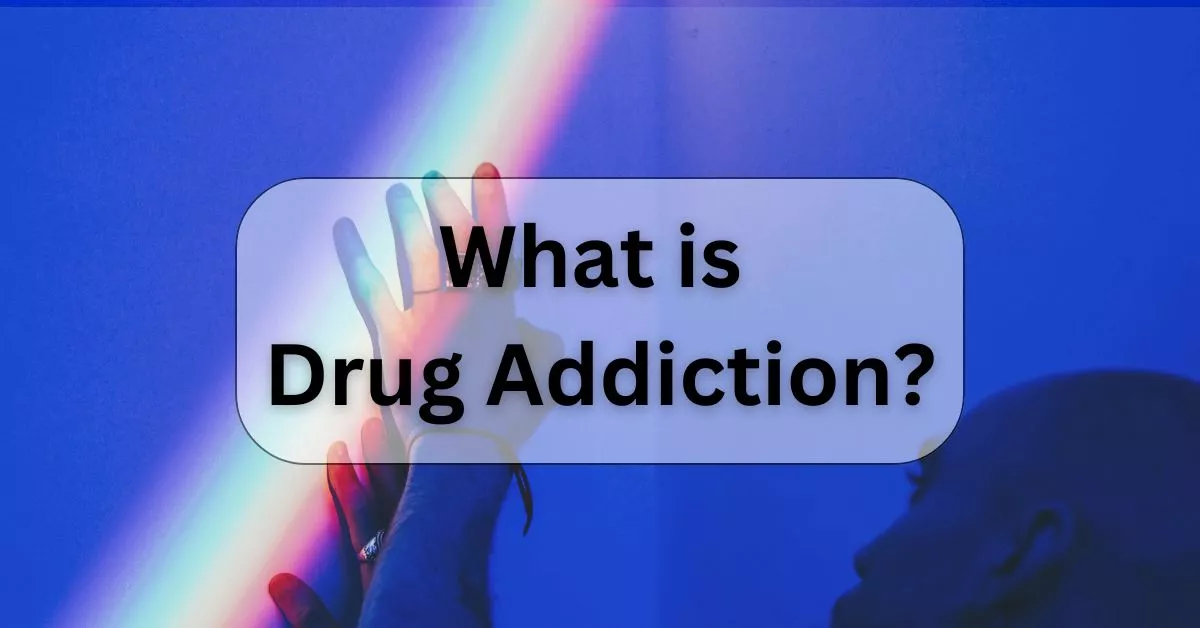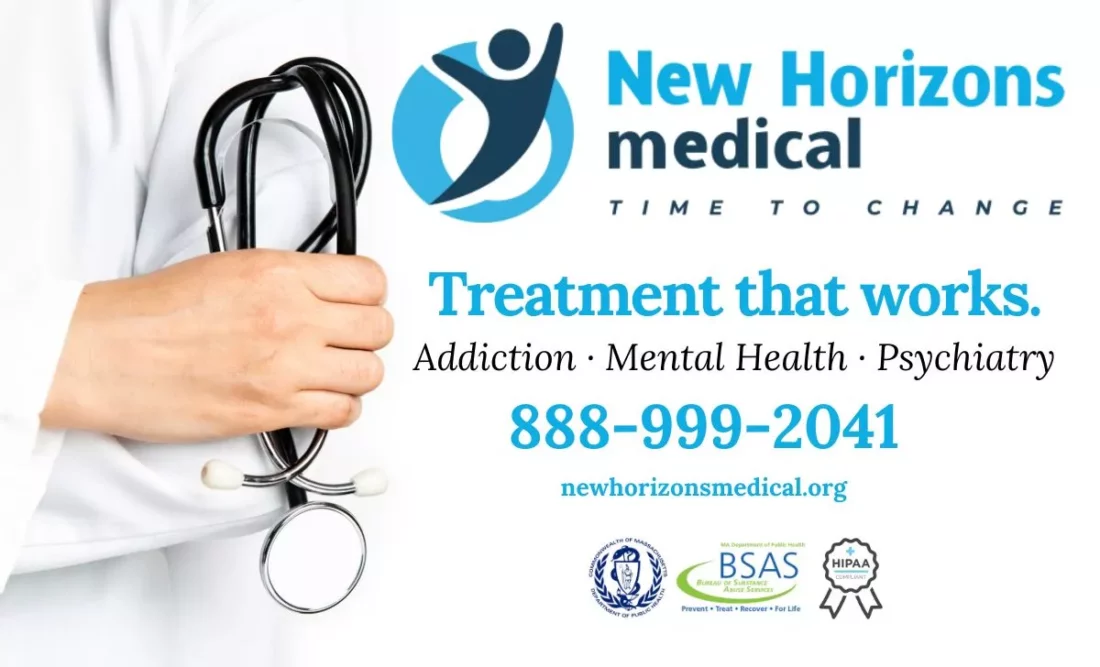
If you or a loved one are experiencing drug addiction, you may feel overwhelmed, stuck, and wondering what is drug addiction anyways? Unfortunately, societal stigma means some people view drug addiction as rooted in a lack of willpower. However, this couldn’t be further from the truth. Drug addiction can happen to anyone regardless of background, and its roots are often complex and multifaceted.
To help you get to grips with drug addiction and take the first vital steps toward recovery, we’ve produced an informative drug addiction explanation, including the stages of addiction and how to seek treatment for substance abuse disorders. Remember – the road to recovery is sometimes rocky, but everyone has the potential to overcome drug addiction and regain control of their lives.
Need immediate help? Call New Horizons Medical at 888-999-2041.

Defining drug addiction
Put simply, drug addiction occurs when a person compulsively takes substances despite their harmful social, physical, and mental consequences. Also known as substance abuse disorder, drug addiction can alter the structure and function of the brain, causing extreme cravings and impulse control problems.
People can be addicted to one or more drugs at once. Common dependencies include:
- Alcohol: Alcohol addiction is relatively common given its legal status and widespread availability. As well as impacting people’s social relationships and ability to carry out everyday functions, people who are addicted to alcohol may experience withdrawal symptoms, including nausea, tremors, insomnia, sweating, and even seizures. In the long term, heavy drinking can lead to severe liver damage and an increased risk of health problems such as cancer and cardiovascular disease.
- Opioids: Opioids represent a class of drugs that interact with the body’s opioid receptors, causing both pain relief and euphoria. Commonly used opioids include heroin, fentanyl, and prescription pain relievers such as codeine and morphine. Consistent use of opioids can harm the brain and cause physical dependence. Withdrawal symptoms include depression, fatigue, muscle pain, severe nausea and vomiting, diarrhea, and cold flashes. The risk of overdose and death is high for opioids, with fentanyl posing an especially high risk.
- Stimulants: Stimulants such as cocaine and methamphetamine work to boost the brain’s dopamine levels, causing pleasure and hyper-alertness. Frequent or heavy stimulant use can cause heart problems and neurological issues, including seizures and strokes. In the long term, stimulants can increase the likelihood of developing memory loss and psychosis.
- Marijuana: Some people use marijuana as an effective medical aid. However, recreational and uncontrolled marijuana use can worsen the symptoms of bipolar disorder and have been linked to depression and social anxiety disorder.
- Sedatives: Sedatives such as Valium and Xanax slow brain activity and are sometimes prescribed to treat sleep problems and anxiety. However, misuse of sedatives can cause cognitive problems, memory issues, low blood pressure, and seizures.
What are the stages of addiction?
Everyone’s addiction story is different. However, most people experience several stages of addiction as their condition progresses and worsens. These include:
The experimentation stage
People don’t typically become addicted to a drug after first experiencing its effects. Rather, they start out using the substance due to curiosity or peer pressure. For some people, their experience with a drug does not progress past the experimentation phase or does not progress to addictive levels. For example, many people enjoy alcohol without developing an addiction.
More frequent use
Having experimented with a drug once and experienced no or few negative effects, people may begin to use it more frequently. While regular use doesn’t necessarily lead to addiction, it could help someone develop a casual attitude toward substance abuse.
Problematic usage
Once a person starts to experience the negative side effects of drug use, we may classify their usage as problematic. For example, it could start affecting their physical wellbeing and appearance, as well as their close relationships and ability to engage with work or school. Despite such unpleasant consequences, someone with an emergent addiction will not be able to stop using the substance(s).
Dependence
A person who is dependent on a drug will start to require the substance to function. For example, someone with alcohol use disorder may need to drink in the morning to control tremors, while someone with a heroin dependence may start to experience physical weakness and nausea. In such cases, people often prioritize sourcing and taking the substance above all other considerations in their lives, including family and friends.
Addiction
Finally, someone in the throes of addiction cannot control their substance use even if they desperately want to quit. Fortunately, there is help available to help patients with addiction regain control and prevent themselves from relapsing in future.
What is the impact of drug addiction?
Substance abuse disorders can impact almost every aspect of a person’s life. As well as overdose and death, a person with drug addiction may experience temporary or permanent organ damage, respiratory complications, neurological issues, and psychiatric disorders. Addiction could even increase a person’s chances of contracting infectious diseases such as hepatitis through infected needles or risky sexual behaviors.
Addiction can also impact relationships with peers, friends, and family, as the need to obtain substances can lead to seemingly selfish and erratic behaviors. Sometimes, people experiencing addictions will also spend significant sums on drugs, leading to poverty and unstable relationships. Children with addicted parents are therefore more likely to experience mental health issues, struggle academically, engage in illegal behaviors, and experience substance abuse problems themselves.
Finally, drug addiction causes wider societal issues, fueling crime, violence, and social problems. Unfortunately, such behaviors can mean people enter into a criminal justice system that may not help them address their addiction, leading to a vicious circle that hinders access to employment and housing.
Overcome addiction with our outpatient addiction treatment
At New Horizons Medical, we offer high-quality outpatient addiction treatment programs designed to suit your physical and emotional needs. Your addiction history can be complex, often compounded by trauma and mental health issues. Our holistic approach is designed to help those facing these challenges. For more information about our dual diagnosis treatment and compassionate care, contact us to book a consultation for yourself or a loved one in need.
Call New Horizons Medical at 888-999-2041!


